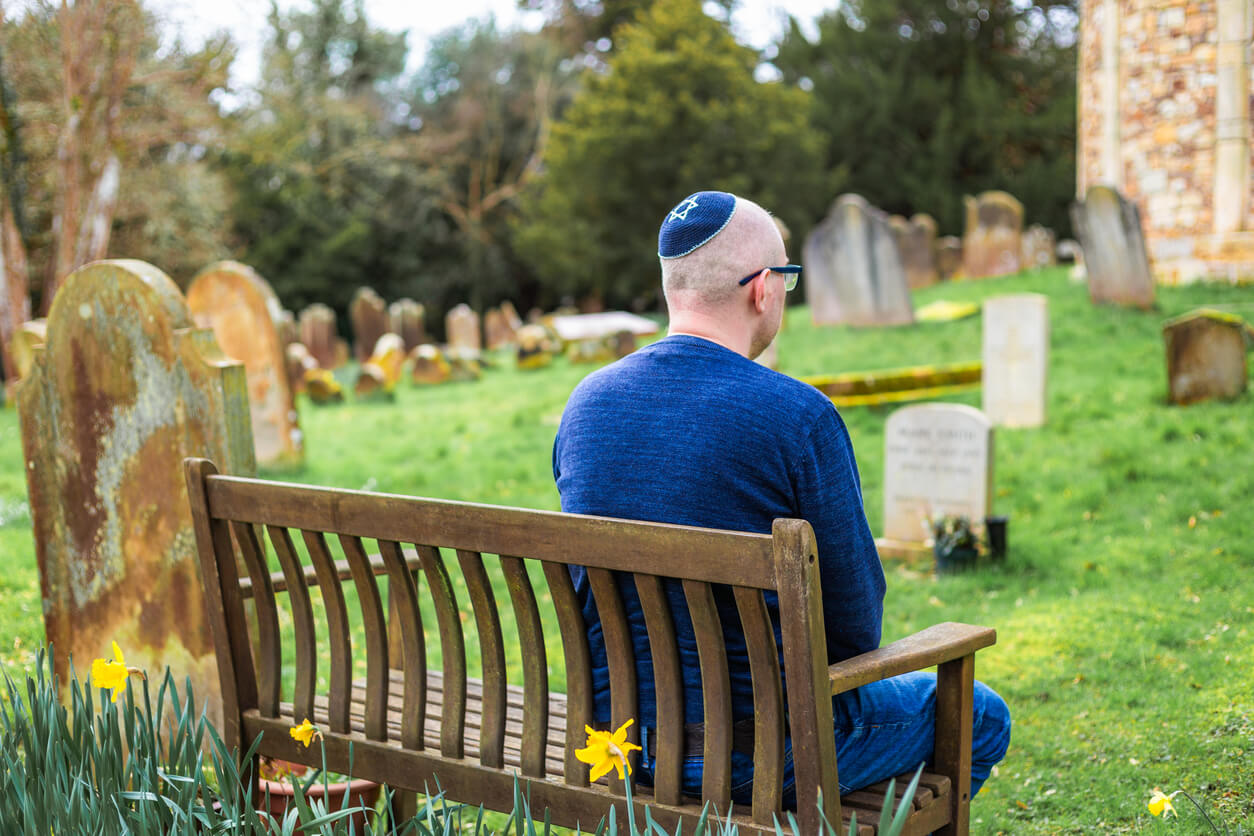What’s the best thing to say to a mourner? A rabbi responds
At a house of shiva, listening and being present can be more important than talking

Photo by iStockPhoto
What’s the best thing to say to someone when visiting them during shiva, the week of Jewish mourning following a death in the family?
It may sound odd, but the answer to this question was revealed to me in the middle of the night while holding my two-week-old granddaughter.
As my daughter and son-in-law convalesced in our home, my wife and I volunteered to have the baby sleep in our room to give our daughter some rest while she recuperated from the birth. I was exhausted in the early morning hours and my wife said to me, “Do not think about how tired you are right now. Think about what the baby needs.” Those words shifted my perspective from being self-centered to other-centered. At that moment, my granddaughter needed my full attention.
The perspective on being fully present for another and being mindful of their needs is the secret to a meaningful shiva visit and in enriching all of our relationships. All too often, when we enter a house of mourning, the discomfort of not knowing what to say leads to an environment of levity and distraction from the purpose of the visit.
Having gone to hundreds of shiva homes and spoken with countless mourners, the most comforting visits may be in just listening to the mourner speak about their loved one. Ask a few questions to evoke their relationship with the person for whom they are mourning.
Here are some ideas for questions:
- What are some positive memories with your father or mother that you will never forget?
- Can you share some of your parents’ values? What was important to them?
- Did your loved one visit Israel and on what occasion?
- What were some of the most meaningful conversations with your loved one?
Be fully engaged when they speak, knowing that your empathy will provide comfort to them. When we provide the mourner with the opportunity to share stories, the memory of their relative becomes alive and truly felt. The mourners sense their loved one is being honored and remembered when we put away our phones and listen fully. This sentiment can be the most comforting of all.
In truth, comforting mourners extends far beyond shiva. Most importantly, try to be there for the mourner in the days, weeks and months that follow. True friends are those who stay in touch and continue to reach out, even if the mourner does not at first seem responsive to social invitations. Our compassionate presence over time can help our friends find the strength to go on.
Empathy extends beyond shiva visits, and is vital in all of our relationships. In the words of Alfred Adler, a 20th century Austrian psychotherapist: “Empathy is seeing with the eyes of another, listening with the ears of another and feeling with the heart of another.”
For instance, in a marriage, after a long day at work, your spouse tells you about a problem they are having with a friend or coworker. You listen to the story, hoping your spouse speeds it up, and at the end you offer a solution. You feel like you helped the situation, but your spouse is frustrated and feels that you don’t listen. They don’t want a solution; they want you to listen. At that moment, they just want you to be fully present for them.
I will never forget the story of Dr. Mert Erogul, an emergency doctor in Brooklyn. In 2020, he was treating a 100-year-old Hasidic lady with COVID. Her son kept calling the doctor to find out her status and asked to speak to his mom. Dr. Ergrol responded, “You can’t, I’m too busy.”
The son persisted and said, “It’s very important that I do a prayer for her. Could you hold the speaker to her ear?” The doctor shared, “I had ten other pressing things to do, but I stopped what I was doing out of respect for this 100-year-old woman and put the cellphone on speakerphone and told him to talk.”
Dr. Erogul wrote, “Her son started a prayer of the dead and began to cry, barely getting the words out. I saw she had numbers tattooed on her arm. He was crying for his mother and praying the Shema, the verses of unity and it woke up some emotion in me that I had forgotten about. Time slowed down and I felt restored to myself. When he was done he thanked me and blessed me and I said thank you to him.”
When we pause to direct ourselves away from our needs and focus on the person in front of us, we can transform a fleeting moment into an eternal one — be it at a house of shiva, our own homes or even at work.
Take a moment today to ask yourself, is there someone I should call? Is there someone I should help? Is there someone that I have been neglecting until now because I felt just too busy?
Redirect this moment not to what you are feeling but to uplift someone else. Our actions will never be forgotten.
















